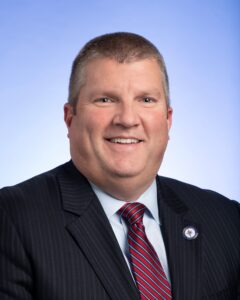Governor Bill Lee announced that he will call for the Tennessee General Assembly to convene a special session on Monday, January 27, to pass the Education Freedom Act. Additionally, the Governor will introduce a disaster relief legislative package addressing recovery needs for Hurricane Helene, as well as future natural disasters. The session will also address public safety measures regarding illegal immigration, as the incoming Trump Administration has called on states to prepare for policy implementation.
Gov. Lee will issue an official call and provide additional details in the coming days.
Joint statement from Gov. Lee, Lt. Gov. Randy McNally, House Speaker Cameron Sexton, Senate Majority Leader Jack Johnson, and House Majority Leader William Lamberth:
“We believe the state has a responsibility to act quickly on issues that matter most to Tennesseans, and there is widespread support in the General Assembly and across Tennessee for a special session on the most pressing legislative priorities: the unified Education Freedom Act and a comprehensive relief package for Hurricane Helene and other disaster recovery efforts. The majority of Tennesseans, regardless of political affiliation, have made it clear that they support empowering parents with school choice, and the best thing we can do for Tennessee students is deliver choices and public school resources without delay. Additionally, Hurricane Helene was an unprecedented disaster across rural, at-risk, and distressed communities that cannot shoulder the local cost share of federal relief funds on their own. The state has an opportunity and obligation to partner with these impacted counties and develop innovative solutions for natural disasters going forward. Finally, the American people elected President Trump with a mandate to enforce immigration laws and protect our communities, and Tennessee must have the resources ready to support the Administration on Day One.”
Education Freedom Act
Gov. Lee and legislative leadership introduced the unified Education Freedom Act (SB1/HB1) on November 6, 2024 with the recognition that every Tennessee child deserves to attend the school that best fits their unique needs, regardless of income or zip code.
In addition to establishing Education Freedom Scholarships, the Act further invests in public schools and teachers by delivering teacher bonuses to recognize their unwavering commitment to student success, increasing K-12 facilities funding, and ensuring state funding to school districts will never decrease due to disenrollment. Gov. Lee and the General Assembly will maintain their commitment to public schools by further investing hundreds of millions of state dollars in the Tennessee Investment in Student Achievement (TISA) formula, and raising starting teacher pay.
Learn more at TNEducationFreedom.com.
Hurricane Helene + Disaster Relief
Hurricane Helene was an unprecedented disaster that primarily impacted at-risk and distressed counties, with eligible damage-related costs estimated at $1.2 billion. Gov. Lee proposes immediate legislative and budgetary action to support ongoing recovery efforts and allow for proactive preparation for future emergencies. The comprehensive plan invests more than $450 million in direct disaster relief. Key components of the plan include:
· Disaster Relief Grants (DRG) Fund: $240 millionto bolster Tennessee’s existing disaster relief fund, as well as reduce the local cost-share burden from 12.5% to 5% and fund the state match requirement in order to access federal funds and cover administrative costs.
· Hurricane Helene Interest Payment Fund: $110 millionto establish a new fund that will help local governments manage loan interest for recovery costs by covering interest costs at 5% per year for three years on loans for recovery expenses.
· Governor’s Response and Recovery Fund: $100 millionto create a new program inspired by the HEAL Program that will provide flexible financial resources for future emergencies, including agricultural recovery, unemployment assistance, and business recovery efforts.
· $20 million for the rebuilding of Hampton High School in Carter County, which was destroyed in Hurricane Helene.
Public Safety + Immigration
The Tennessee General Assembly will consider public safety measures related to illegal immigration to ensure the state is prepared for federal policy implementation.
Last year, Gov. Lee directed key state agencies to begin making preparations and stand ready on Day One of the Trump Administration to support efforts to secure our Nation’s borders and keep communities safe.


